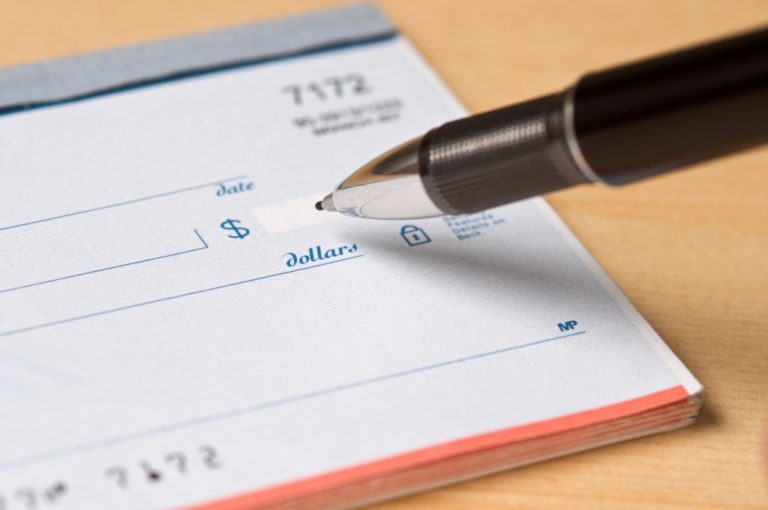Does your lease agreement state that tenants must maintain a credit score to renew a lease? Probably not. That puts you in a spot if you discover a current tenant has credit collections against them. Should you or shouldn’t you keep them after the lease expires?
Renewing a lease for a tenant with credit issues raises a complex dilemma for landlords and property managers. While maintaining good tenant relationships and consistent rental income are important, concerns about financial stability and potential risks cannot be ignored. Let’s look into the factors landlords and property managers should consider when making the decision to renew a lease for a tenant with credit collections.
Tenant Stability and Relationship
Renewing a lease for a tenant with credit collections depends on the nature of the relationship and their overall rental history. If the tenant has demonstrated responsibility and maintained a good rental history, it might be beneficial to weigh their past performance more heavily. A strong tenant-landlord relationship, characterized by timely payments and property upkeep, can suggest that the credit collection issue is an isolated incident.
Credit Collections as a Red Flag
Credit collections indicate past financial struggles that could potentially impact a tenant’s ability to fulfill their lease obligations. Landlords and property managers must assess whether the credit collections are a result of temporary setbacks or indicative of a recurring pattern. Understanding the context behind the collections, such as medical emergencies or unemployment, can offer insights into the tenant’s financial resilience.

Financial Risk Mitigation
Landlords and property managers have a fiduciary responsibility to protect their investment and financial interests. Leasing to a tenant with credit collections carries a certain level of risk, as their financial instability might result in missed rent payments or other financial challenges. To mitigate this risk, landlords can consider requiring a higher security deposit, co-signers, or additional references to ensure that potential losses are minimized.
Legal and Regulatory Considerations
Landlords and property managers must also navigate legal and regulatory factors when deciding whether to renew a lease. Anti-discrimination laws prohibit denying lease renewal solely based on credit history, but they can still use credit collections as part of a comprehensive assessment. It’s crucial to treat all tenants consistently and fairly to avoid potential legal issues.
Communication and Transparency
Open communication with the tenant is essential. Discussing the credit collection issue and its impact on their lease renewal can lead to a clearer understanding of their current financial situation and intentions. It also provides an opportunity for the tenant to demonstrate their commitment to resolving their financial challenges and maintaining the lease.
The Hidden Credit Impact on Lease Renewals
Approach your renewals like you would any prospective tenant once you learn about credit collection notices involving a current tenant. You need to protect your investment. So, rather than merely relying on assumptions, reach out to your tenant to discuss their financial situation.
Ultimately, whether or not to renew a lease will depend on a variety of factors:
- severity of the credit collections
- payment habits during previous lease term
- capacity to pay future rent
- your own goals and objectives as landlord or property manager
Let’s take a look at each.

Severity of credit collections
If the credit collections are minor and stem from isolated incidents, such as a one-time medical expense or temporary job loss, the landlord might consider these as understandable challenges and be more inclined to renew the lease. In such cases, the tenant’s overall history of responsible rent payments and good conduct could outweigh the negative credit information.
However, if the credit collections are severe and indicative of chronic financial mismanagement or a consistent pattern of non-payment, landlords may be more hesitant to renew the lease. This severity suggests a higher level of financial risk, as the tenant’s inability to manage their debts could extend to their rental obligations. Landlords are more likely to prioritize protecting their investment and minimizing potential losses, which could lead to a decision not to renew the lease.
Ultimately, the severity of credit collections provides insight into the tenant’s financial stability and responsibility. Landlords and property managers must carefully assess whether the tenant’s financial challenges are temporary or indicative of ongoing issues when making their renewal decision, striking a balance between maintaining a positive tenant relationship and safeguarding their own interests.

Previous payment habits
A tenant’s payment history plays a crucial role in a landlord’s decision regarding whether to renew a lease. If a tenant has consistently demonstrated on-time rent payments and a history of fulfilling their financial obligations, it reflects their reliability and financial responsibility. Landlords and property managers are more likely to view such tenants favorably and consider lease renewal as they have shown a track record of meeting their commitments.
Conversely, if a tenant has a history of late or inconsistent rent payments, it raises concerns about their financial stability and reliability. Landlords and property managers might hesitate to renew the lease due to worries about potential future payment issues. Such payment habits can be indicative of a tenant’s ability to manage their finances and fulfill their obligations in the future.
Previous payment habits provide insight into a tenant’s level of responsibility and reliability as a renter. Landlords and property managers prioritize minimizing financial risk and maintaining a steady income stream, making a tenant’s payment history a significant factor in the lease renewal decision-making process.

Capacity to pay future rent
The capacity to pay future rent is a critical consideration influencing a landlord’s decision to renew a lease for a current tenant with credit collection issues. While these issues might indicate past financial struggles, assessing the tenant’s current financial stability and capacity to meet future rent obligations becomes paramount.
If the tenant has since improved their financial situation, secured stable employment, and displayed an earnest commitment to resolving their credit issues, landlords and property managers may be more inclined to renew the lease. Demonstrated efforts to rectify their financial challenges can suggest an enhanced ability to fulfill their rental obligations going forward.
On the other hand, if the tenant’s capacity to pay future rent remains uncertain due to ongoing financial difficulties or lack of visible improvement, landlords and property managers may be hesitant to renew the lease. The potential for missed or delayed rent payments could pose a risk to the landlord’s or property owner’s income and investment.
In summary, a tenant’s current financial capacity is a pivotal factor that helps landlords and property managers weigh the potential risks and rewards of lease renewal. The tenant’s ability to address and overcome credit collection issues speaks of their commitment to financial responsibility and their likelihood of fulfilling future rent payments.

Goals and objectives
One’s own goals and objectives as a landlord or property manager play a significant role in the decision to renew a lease for a current tenant with credit collection issues. If a landlord’s primary goal is to maintain a stable rental income and minimize vacancies, they might lean towards renewing the lease if the tenant’s credit collection issues appear to be a one-time occurrence or if the tenant has a strong rental history. This approach prioritizes consistent cash flow and tenant retention.
In contrast, if a landlord or property places a higher emphasis on mitigating financial risks and ensuring the overall financial health of the property, they might opt not to renew the lease for a tenant with serious credit collection problems. Protecting their investment becomes paramount in this scenario, and they may choose to seek a tenant with a more stable financial background to reduce the potential for missed payments or property damage.
Ultimately, the landlord’s objectives and priorities drive the decision-making process. Whether the focus is on long-term tenant relationships, financial stability, or property value, these goals will shape how credit collection issues are evaluated and whether lease renewal is pursued.
Afterword
The decision to renew a lease for a tenant with credit collections demands a delicate balance between risk and considerations. While a tenant’s past financial struggles shouldn’t be the sole determinant, landlords and property managers must carefully assess the overall tenant history, the nature of the credit collections, and potential financial risks. Maintaining open communication with the tenant can lead to informed decisions that benefit both parties. That said, the choice to renew a lease should be guided by a thoughtful analysis of the tenant’s character, relationship, and financial potential.